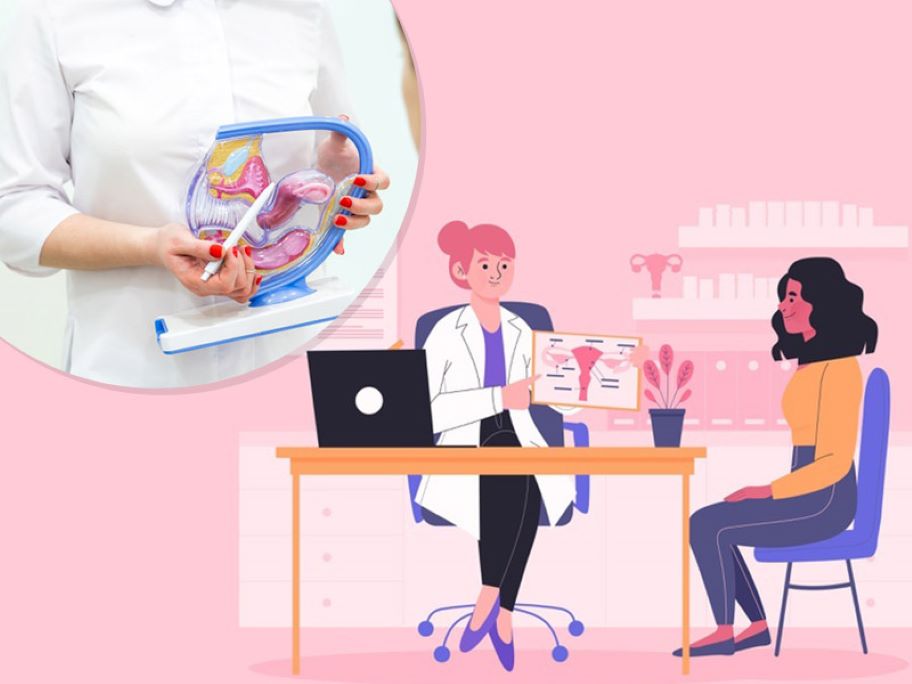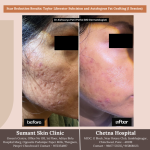Women’s health is a cornerstone of societal well-being, yet many common gynecological issues remain under-discussed. Menstrual disorders, vaginal infections, fibroids, endometriosis, and polycystic ovary syndrome (PCOS) affect millions of women globally. Awareness, timely diagnosis, and effective treatment are essential for managing these conditions and improving overall health outcomes. Let’s delve deeper into these concerns and explore ways to address them.
1. Menstrual Disorders
Menstrual disorders encompass a range of issues including irregular cycles, heavy bleeding (menorrhagia), painful periods (dysmenorrhea), or the absence of menstruation (amenorrhea). While occasional irregularities may be normal, persistent symptoms warrant attention.
- Causes: Hormonal imbalances, stress, thyroid dysfunction, or conditions like PCOS can disrupt menstrual cycles.
- Impact: Untreated, these disorders may lead to anemia, infertility, or severe pelvic pain.
- Management: Lifestyle changes, medications, or hormonal therapies can regulate cycles. Regular monitoring and early intervention are crucial.
2. Vaginal Infections
Vaginal infections, such as bacterial vaginosis, yeast infections, and sexually transmitted infections (STIs), are common but often misunderstood. Symptoms like unusual discharge, itching, and discomfort may point to an infection.
- Causes: Poor hygiene, hormonal fluctuations, and unprotected intercourse can disrupt the vaginal microbiome.
- Impact: Untreated infections can lead to complications such as pelvic inflammatory disease (PID) or fertility issues.
- Management: Accurate diagnosis through clinical evaluation and appropriate treatments like antibiotics or antifungal medications are vital. Maintaining proper hygiene and practicing safe sex are key preventive measures.
3. Fibroids
Fibroids are non-cancerous growths in the uterus that affect up to 70% of women by age 50. While some fibroids are asymptomatic, others can cause heavy bleeding, pelvic pain, or fertility problems.
- Causes: Although the exact cause is unclear, hormonal factors and genetics play a significant role.
- Impact: Untreated fibroids can lead to severe anemia or complications during pregnancy.
- Management: Treatment ranges from medications to manage symptoms to minimally invasive procedures like uterine artery embolization or surgical options like myomectomy.
4. Endometriosis
Endometriosis occurs when tissue similar to the uterine lining grows outside the uterus, often causing severe pain and infertility. This condition affects approximately 10% of reproductive-aged women.
- Causes: The exact cause is unknown, but retrograde menstruation, immune system disorders, or genetic factors may contribute.
- Impact: Beyond physical symptoms, endometriosis can affect mental health, relationships, and quality of life.
- Management: Hormonal therapies, pain management, and advanced surgical techniques can help. Early diagnosis is critical to prevent complications.
5. Polycystic Ovary Syndrome (PCOS)
PCOS is a hormonal disorder that affects 1 in 10 women of reproductive age. It’s characterized by irregular periods, excessive androgen levels, and polycystic ovaries.
- Causes: Insulin resistance and hormonal imbalances are major contributors.
- Impact: PCOS can lead to infertility, obesity, diabetes, and mental health challenges like anxiety or depression.
- Management: Lifestyle changes, including diet and exercise, combined with medications, can help manage symptoms. Regular monitoring is essential to prevent long-term complications.
Holistic Approaches to Women’s Health
Addressing these conditions requires a multifaceted approach:
- Education and Awareness: Understanding symptoms and their implications empowers women to seek timely care.
- Regular Check-ups: Routine gynecological visits can detect issues early.
- Lifestyle Modifications: A balanced diet, regular exercise, and stress management play a critical role in overall health.
- Emotional Support: Mental health is often intertwined with physical health. Seeking counseling or support groups can make a significant difference.
Conclusion
Gynecological concerns like menstrual disorders, vaginal infections, fibroids, endometriosis, and PCOS are manageable with the right knowledge and care. Prioritizing women’s health through education, regular check-ups, and holistic care can significantly improve quality of life.
At Chetna Multispeciality Hospital, we are committed to empowering women with expert care and advanced treatments. Don’t wait—your health deserves attention today!
For Consultation Contact us on 9168690447
Website –
Address – Chetna Hospital, Sambhajinagar, MIDC, G Block, Near Rotary Club, Chinchwad 411019
.
.
.
#hospital#pune#pcmc#chinchwad#health#healthcare#gynaecologist#femalegynaecologist#gynaecologistappointment#gynac#gynaecologistdoctor#gynaecologisthospital#goodgynaecologist#gynaecologistspecialist.













